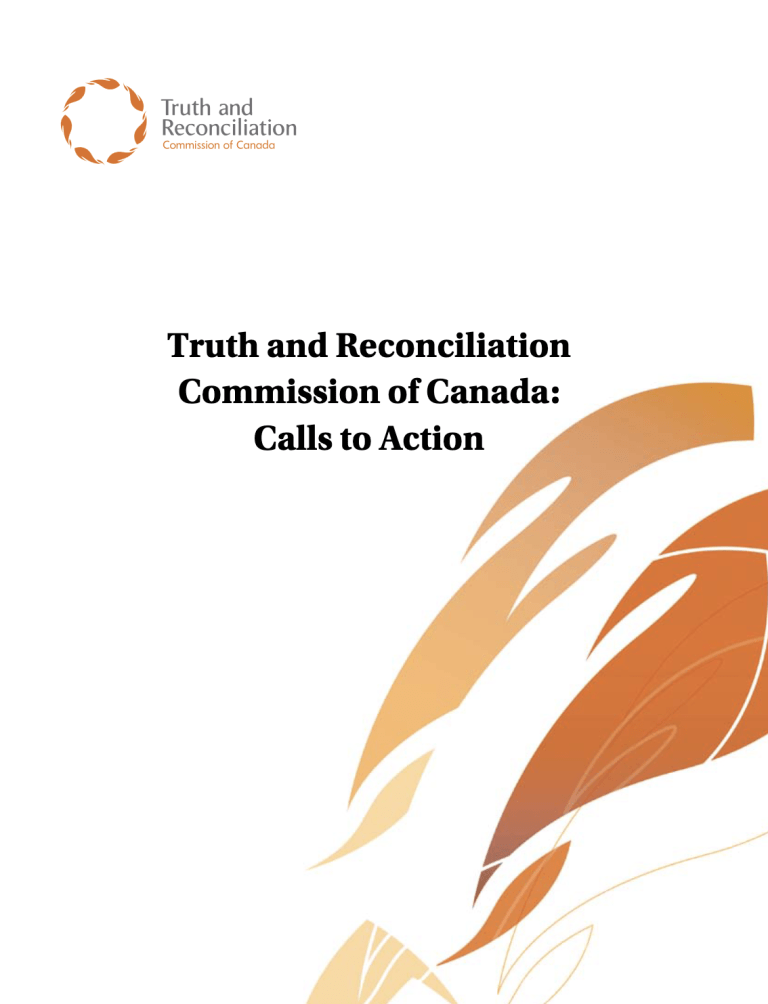16 search results
for
Education and employment
Legacy
Child welfare
Recommendation 5: We call upon the federal, provincial, territorial, and Aboriginal governments to develop culturally appropriate parenting programs for Aboriginal families.-
Category and theme:
Audience:
Groups affected:
Location of recommendation:
Legacy
Education
Recommendation 7: We call upon the federal government to develop with Aboriginal groups a joint strategy to eliminate educational and employment gaps between Aboriginal and non-Aboriginal Canadians.-
Category and theme:
Groups affected:
Location of recommendation:
Legacy
Education
Recommendation 8: We call upon the federal government to eliminate the discrepancy in federal education funding for First Nations children being educated on reserves and those First Nations children being educated off reserves.-
Category and theme:
Audience:
Groups affected:
Location of recommendation:
Legacy
Education
Recommendation 9: We call upon the federal government to prepare and publish annual reports comparing funding for the education of First Nations children on and off reserves, as well as educational and income attainments of Aboriginal peoples in Canada compared with non Aboriginal people-
Category and theme:
Audience:
Groups affected:
Location of recommendation:
Legacy
Education
Recommendation 10: We call on the federal government to draft new Aboriginal education legislation with the full participation and informed consent of Aboriginal peoples. The new legislation would include a commitment to sufficient funding and would incorporate the following principles:- Providing sufficient funding to close identified educational achievement gaps within one generation.
- Improving education attainment levels and success rates.
- Developing culturally appropriate curricula.
- Protecting the right to Aboriginal languages, including the teaching of Aboriginal languages as credit courses.
- Enabling parental and community responsibility, control, and accountability, similar to what parents enjoy in public school systems.
- Enabling parents to fully participate in the education of their children.
- Respecting and honouring Treaty relationships.
-
Category and theme:
Audience:
Groups affected:
Location of recommendation:
Legacy
Education
Recommendation 11: We call upon the federal government to provide adequate funding to end the backlog of First Nations students seeking a post-secondary education.-
Category and theme:
Audience:
Groups affected:
Location of recommendation:
Legacy
Education
Recommendation 12: We call upon the federal, provincial, territorial, and Aboriginal governments to develop culturally appropriate early childhood education programs for Aboriginal families.-
Category and theme:
Audience:
Groups affected:
Location of recommendation:
Legacy
Health
Recommendation 23: We call upon all levels of government to:- Increase the number of Aboriginal professionals working in the health-care field.
- Ensure the retention of Aboriginal health-care providers in Aboriginal communities.
- Provide cultural competency training for all healthcare professionals.
-
Category and theme:
Audience:
Groups affected:
Location of recommendation:
Reconciliation
National Council for Reconciliation
Recommendation 53: We call upon the Parliament of Canada, in consultation and collaboration with Aboriginal peoples, to enact legislation to establish a National Council for Reconciliation. The legislation would establish the council as an independent, national, oversight body with membership jointly appointed by the Government of Canada and national Aboriginal organizations, and consisting of Aboriginal and non-Aboriginal members. Its mandate would include, but not be limited to, the following:- Monitor, evaluate, and report annually to Parliament and the people of Canada on the Government of Canada’s post-apology progress on reconciliation to ensure that government accountability for reconciling the relationship between Aboriginal peoples and the Crown is maintained in the coming years.
- Monitor, evaluate, and report to Parliament and the people of Canada on reconciliation progress across all levels and sectors of Canadian society, including the implementation of the Truth and Reconciliation Commission of Canada’s Calls to Action.
- Develop and implement a multi-year National Action Plan for Reconciliation, which includes research and policy development, public education programs, and resources.
- Promote public dialogue, public/private partnerships, and public initiatives for reconciliation.
-
Category and theme:
Audience:
Groups affected:
Location of recommendation:
Reconciliation
National Council for Reconciliation
Recommendation 55: We call upon all levels of government to provide annual reports or any current data requested by the National Council for Reconciliation so that it can report on the progress towards reconciliation. The reports or data would include, but not be limited to:- The number of Aboriginal children—including Métis and Inuit children—in care, compared with non-Aboriginal children, the reasons for apprehension, and the total spending on preventive and care services by child-welfare agencies.
- Comparative funding for the education of First Nations children on and off reserves.
- The educational and income attainments of Aboriginal peoples in Canada compared with non-Aboriginal people.
- Progress on closing the gaps between Aboriginal and non-Aboriginal communities in a number of health indicators such as: infant mortality, maternal health, suicide, mental health, addictions, life expectancy, birth rates, infant and child health issues, chronic diseases, illness and injury incidence, and the availability of appropriate health services.
- Progress on eliminating the overrepresentation of Aboriginal children in youth custody over the next decade.
- Progress on reducing the rate of criminal victimization of Aboriginal people, including data related to homicide and family violence victimization and other crimes.
- Progress on reducing the overrepresentation of Aboriginal people in the justice and correctional systems.
-
Category and theme:
- Decolonization and Indigenous rights ,
- Economic inequality ,
- Education and employment ,
- Health ,
- Health, wellness and services ,
- Indigenous children and youth in care ,
- Indigenous issues in policing and justice ,
- Mental health and detention ,
- Policing and the criminal justice system ,
- Poverty and economic inequality ,
- Pre-natal care ,
- Public services
Audience:
Groups affected:
Location of recommendation:
